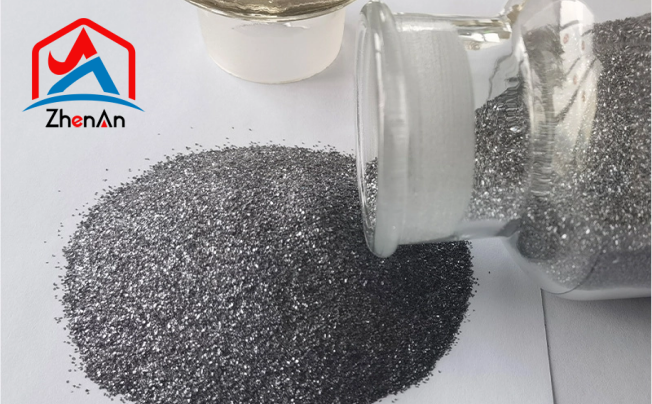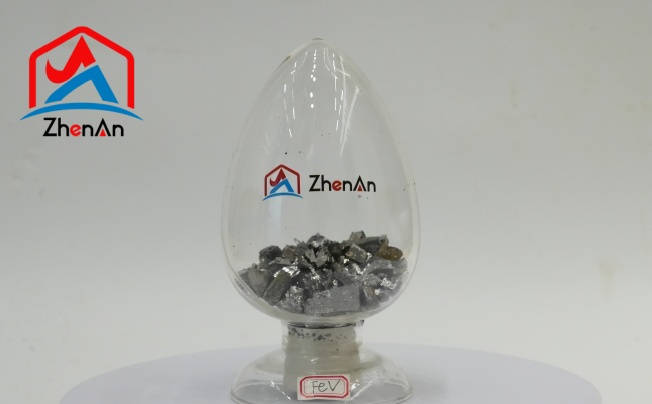BY  GENN
GENN
2024/12
Blog
What Does Vanadium Do To Humans?
Vanadium is a trace mineral found naturally in soil, water, and some foods. It is greyish-silver in color and has a high melting point. In the periodic table, vanadium is in the same group as titanium and chromium.
Sources of Vanadium
Vanadium is a trace mineral found in our environment. Although it is present in the soil, it can also be found in water, air, plants, and animals. The human diet is a significant source of vanadium.
Foods such as mushrooms, seafood, whole grains, and vegetables are good sources of vanadium. Some studies even suggest that consuming meats and dairy products could provide higher levels of vanadium than plant-based foods.
Recommended daily intake
The Food and Nutrition Board has not established the recommended daily intake (RDI) for vanadium because there is insufficient information available about its possible benefits or toxicity at different intake levels. However, some health professionals have suggested that a daily intake between 10 and 30 mcg might be safe for most people.
Role in metabolism and energy production
Vanadium plays an essential role in various metabolic processes within the human body. It acts as an enzyme cofactor, which helps activate certain enzymes needed to catalyze chemical reactions involved in metabolism such as glucose oxidation or lipid metabolism.
Additionally, vanadium has been shown to play a role in energy production by facilitating the transport of glucose into cells, where it can be used efficiently as fuel for muscle contractions during exercise. This increased transport leads to better glycogen storage, which ultimately translates into improved endurance during physical activity.
While little is known about the exact amounts required by humans on a daily basis or its long-term effects on health due to limited research done on this topic so far; we do know that vanadium plays an important role in metabolism and energy production within our bodies. Therefore, ensuring adequate amounts through diet should be considered crucial for maintaining optimal health outcomes.
Health Benefits of Vanadium
- Regulation of Blood Sugar Levels
Vanadium has been found to play a significant role in regulating blood sugar levels in the human body. This is due to its insulin-mimicking properties, which make it an attractive option for people with diabetes.
Insulin is responsible for regulating blood glucose levels in the body, and vanadium acts as a catalyst for this process. Studies have shown that vanadium can enhance insulin sensitivity and promote glucose uptake by muscle cells.
It does this by stimulating the insulin receptor, which then leads to increased uptake of glucose from the bloodstream. One study conducted on rats showed that vanadium reduced blood glucose levels by 47% compared to a control group.
The effective dose of vanadium for blood sugar regulation varies depending on multiple factors such as age, gender, and health condition. However, an intake of 10–30 mg per day is generally recommended for optimal results.
- Potential Role in Bone Health
Vanadium also plays a potential role in bone health due to its impact on bone formation and strength. It has been found to increase osteoblast activity (cells responsible for bone formation) while decreasing osteoclast activity (cells responsible for bone resorption). This leads to increased bone mineral density and strength.
In one study conducted on postmenopausal women with low bone density, supplementation with vanadyl sulfate (a form of vanadium) resulted in increased bone mineral density after six months compared to a placebo group. The effective dose of vanadyl sulfate for improved bone health is around 50–100 mg per day but should be taken under medical supervision due to the risk of toxicity.
- Anti-inflammatory Properties
Vanadium has potent anti-inflammatory properties that make it an attractive option for people suffering from inflammation-related diseases such as rheumatoid arthritis. The mechanism behind its anti-inflammatory action lies in its ability to inhibit pro-inflammatory cytokines such as TNF-alpha and IL-6. Research has shown that supplementation with vanadyl sulfate can lead to significant reductions in joint inflammation and pain associated with rheumatoid arthritis when added as an adjuvant therapy alongside traditional medications.
The effective dosage range varies from 25 to 100 mg/day depending on individual factors like age or weight; taking more than this amount may result in harmful effects like toxicity symptoms or reduce thyroid function over time.
Risks and Side Effects Associated with Excess Intake
While vanadium is essential in small amounts, excess intake can lead to various health risks and side effects. It is crucial to maintain optimal levels of vanadium intake to avoid these risks and ensure overall well-being.
Toxicity Symptoms
Acute toxicity symptoms from high doses of vanadium may include gastrointestinal distress, abdominal pain, vomiting, diarrhoea, and nausea. Moreover, chronic exposure to high levels of vanadium has been linked to liver damage and anemia. Other symptoms may include hypertension, low blood pressure, seizures or convulsions, and decreased kidney function.
Although significant toxicity from dietary sources of vanadium is unlikely in healthy individuals due to its limited absorption rate in the gut, caution should be taken for those who are consuming supplements or other concentrated sources of vanadium. The safe upper limit for daily intake set by the Institute of Medicine (IOM) is 1.8 mg/day for adults.
Interference with Thyroid Function
Vanadium has been shown to interfere with thyroid function by inhibiting the uptake of iodine by the thyroid gland. Iodine is necessary for the production of thyroid hormones that regulate metabolism throughout the body. Excessive consumption of vanadium may lead to hypothyroidism or an underactive thyroid gland.
This interference is mostly observed when there are higher concentrations than recommended levels present in the body over a prolonged period. If you are taking supplements containing vanadium, specifically those exceeding 1 mg (the recommended daily dose), it’s advisable to keep monitoring your thyroid function regularly with your physician.
Interaction with other Medications
If you are taking any medications like diabetic medication or insulin that affect blood sugar level regulation or if you have underlying health conditions such as diabetes or hypoglycemia that require medical attention, you must consult your doctor before taking any additional supplements, including Vanadium. Vanadium-containing supplements have been known to enhance insulin sensitivity, which could lead to a dangerous drop in blood glucose level (hypoglycemia), especially when combined with blood-sugar-lowering drugs such as insulin.
Moreover, vanadium could interact negatively with other medications, such as chemotherapy agents, reducing their efficacy. Therefore, it’s wise to always consult your doctor/pharmacist before adding Vanaduim-containing supplements into your routine, especially if you take prescription medication.












